A majority of U.S. adults support the participation of scientific experts in policy debates, but Democrats are more likely than Republicans to think scientists should be involved and are more likely to value their decisions. Partisan divisions also arise in beliefs about the value of the scientific method and the likelihood of bias in scientists’ judgments.
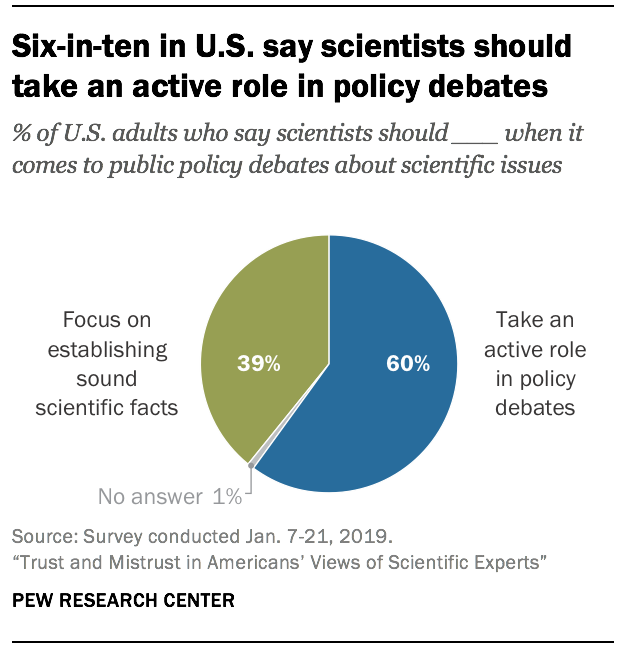
Overall, 60% of Americans say scientists should play an active role in policy debates about scientific issues, the Center’s new survey shows. A smaller share (39%) says scientists should “focus on establishing sound scientific facts and stay out of public policy debates.”
But there are dueling perspectives along party lines about the role and value of scientific experts in science-related policy debates, with most Democrats (73%, including leaners) saying scientists should take an active role. In contrast, a majority of Republicans (56%, including leaners) say scientists should focus on their research and stay out of policy debates, while a smaller percentage (43%) say scientists should play an active role in such debates.
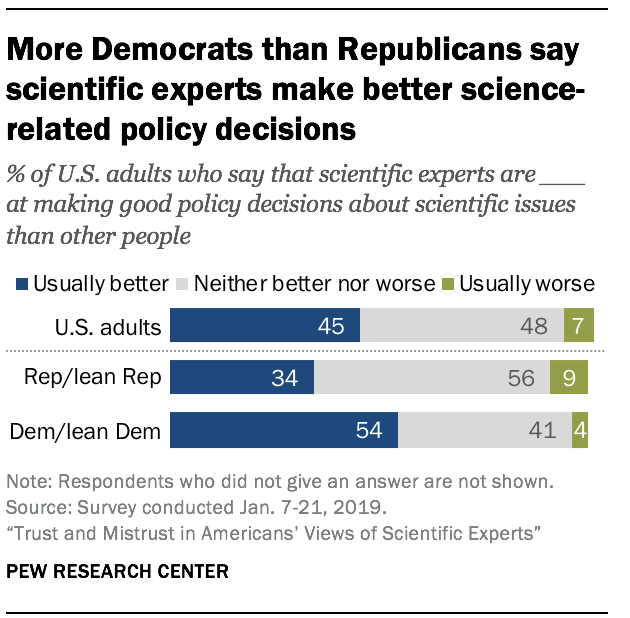
Democrats also are more inclined than Republicans to value the opinions of scientific experts in policy matters. Some 54% of Democrats think scientific experts are usually better at making decisions about scientific issues than other people. In contrast, 34% of Republicans say the same.
How much people know about science can also impact their perspectives on these topics, but the findings show the influence of people’s science knowledge on their views depends on their partisan lens. For example, 84% of Democrats with high science knowledge say scientists should play an active role in science policy debates, compared with 58% of Democrats with low science knowledge. No such pattern exists among Republicans. Four-in-ten Republicans with high science knowledge (40%) – and 52% of those with low science knowledge – say scientists should play an active role in science policy debates. Past Pew Research Center surveys have found a similar pattern on a range of views related to climate and energy issues.
More Democrats than Republicans trust the objectivity of scientists and the scientific method
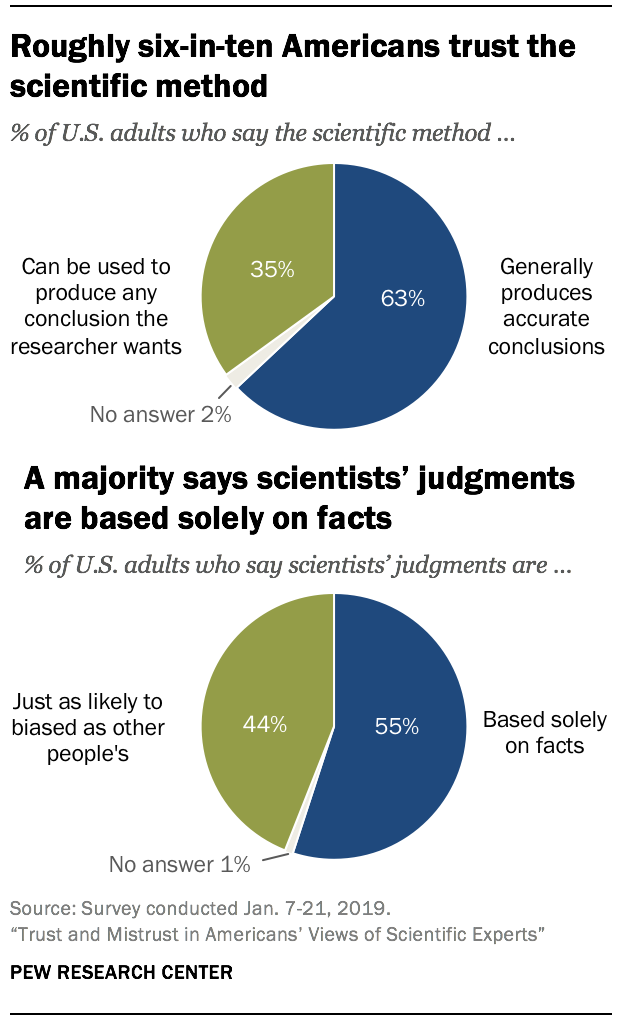
Most Americans believe the processes of science – namely, the scientific method of observing and collecting empirical evidence – are fundamentally sound.
Overall, 63% of Americans say the scientific method generally produces accurate conclusions, while a smaller share (35%) says it can be manipulated to produce a desired conclusion.
Further, a majority of U.S. adults (55%) believe scientists’ judgments are “based solely on the facts,” as opposed to scientists being “just as likely to be biased” in their judgments as other people (44%).
On average, however, more Democrats than Republicans (including independents who identify with each party) are inclined to express confidence in both the scientific method and scientists’ conclusions.
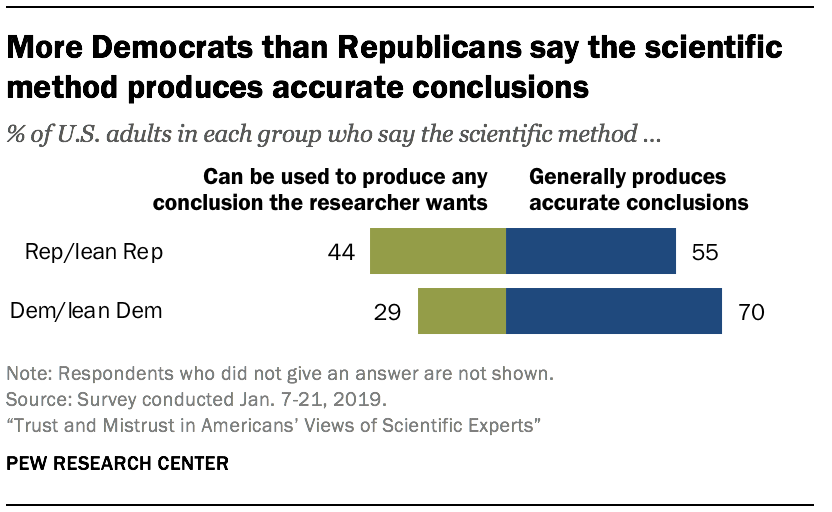
Seven-in-ten Democrats (70%) say the scientific method generally produces accurate conclusions. Opinion among Republicans is more divided, with 55% saying the scientific method produces accurate conclusions and 44% saying the scientific method can be manipulated by researchers to produce desired results.
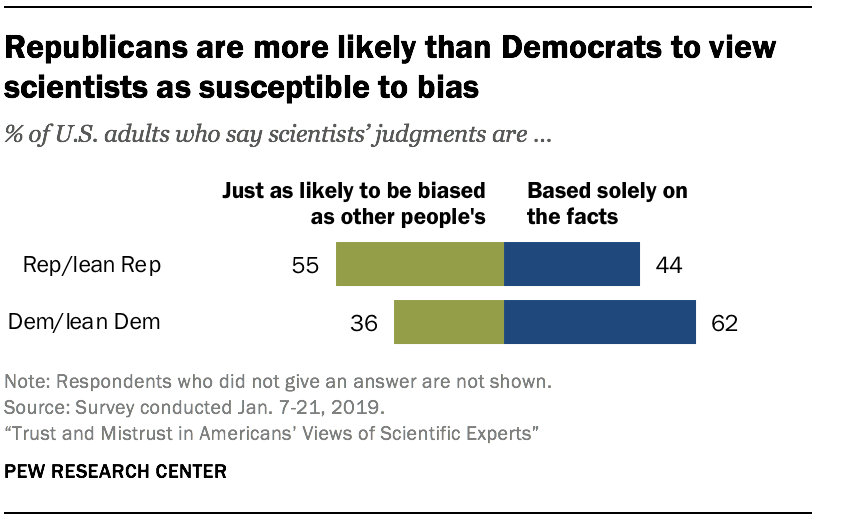
About six-in-ten Democrats (62%) say scientists make judgments based solely on the facts. By comparison, 44% of Republicans say scientists’ judgments are based on facts, while 55% say scientists’ opinions are just as likely to be biased as other people’s.
Science knowledge levels also influence people’s views on these issues, but the correlation depends on their partisanship.
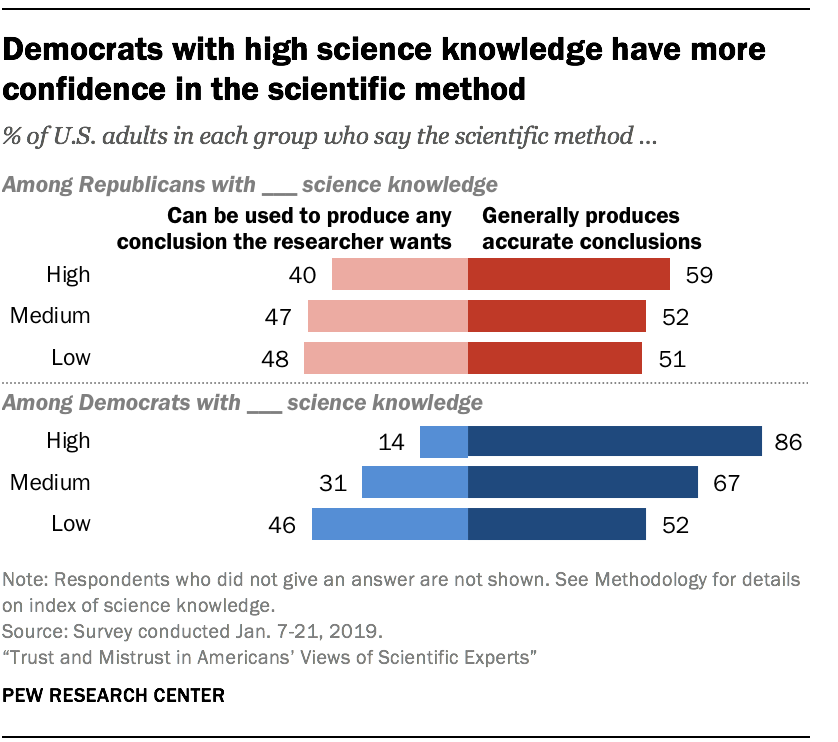
Among Democrats, an overwhelming majority of those with high science knowledge (86%) think the scientific method generally produces accurate conclusions. In contrast, about half of Democrats with low science knowledge (52%) say the scientific method produces accurate conclusions. Differences are modest by comparison among Republicans with high, medium and low science knowledge levels.
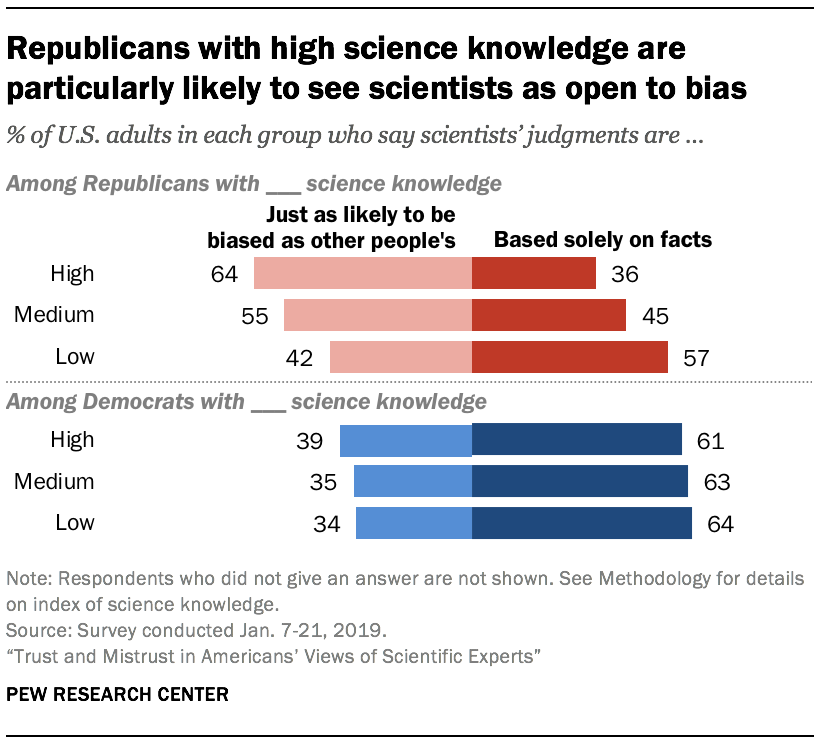
But when it comes to questions of susceptibility to bias, 64% of Republicans with high science knowledge say scientists are just as likely to be biased as other people, while 42% of Republicans with low science knowledge agree. Democrats with low, medium and high science knowledge are all about equally likely (in the 34% to 39% range) to view scientists as susceptible to bias.
Thus, knowledge and information can influence beliefs about these matters, but it does so through the lens of partisanship, a tendency known as motivated reasoning.
Public trust in scientists is only sometimes correlated with political party
Despite political differences over the role and value of scientific experts, public support for and trust in scientists is not uniformly connected with politics, but rather differs depending on the field of scientific study. The Center’s survey looks at public trust in scientists specializing in the environment, medicine and nutrition. Democrats have more trust than Republicans in environmental scientists – whether researchers or environmental health specialists – to perform their jobs with competence, to show concern for the public interest and to present their findings or recommendations in a fair and accurate way. There are also some partisan differences in views of nutrition researchers, but there are no such differences when it comes to medical doctors, medical researchers or dietitians. For details, see “Partisan differences in overall views of and trust in scientists occur primarily for environmental scientists.”
Prior Pew Research Center studies have shown wide political divides on public attitudes related to climate, energy and the environment but no differences or only modest ones when it comes to a host of other science-related issues, including beliefs about the safety of childhood vaccines and the health risks of eating genetically modified foods.




